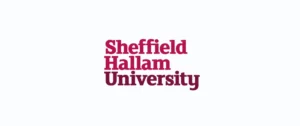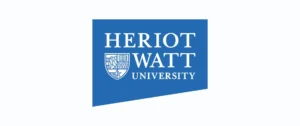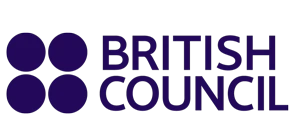Ulster University, often informally referred to as the University of Ulster or UU, is Northern Ireland’s largest university and a leading multi-campus institution, recognised as the UK and Ireland University of the Year 2024 by Times Higher Education. With over 30,000 students from more than 70 countries, Ulster is celebrated for its teaching excellence, research impact, and strong industry links. Established in 1865 as Magee College, it took its modern form in 1984 through mergers, incorporating campuses in Belfast, Coleraine, Derry~Londonderry, and Jordanstown Sports Village, plus branch campuses in London, Birmingham, and Manchester. This guide provides a detailed overview of Ulster University’s campuses, academic offerings, rankings, facilities, and student experience, making it an essential resource for international students considering study in 2025.
History and Evolution
Ulster University’s roots trace back to 1865 with the founding of Magee College in Derry~Londonderry. It evolved through the 20th century, merging the New University of Ulster (established in 1968) and Ulster Polytechnic in 1984 to form the University of Ulster. The Belfast School of Art and Design (founded in 1849) later joined, enriching its creative portfolio. In 2025, Ulster remains a public research university, legally named the University of Ulster, but it embraces its multi-campus identity, serving Northern Ireland and beyond. Its pioneering online learning platform, formerly Campus One, introduced degree-level courses in Biomedical Sciences and Hydrogen Safety Engineering, positioning Ulster as a global leader in distance education.
Campuses of Ulster University
Ulster University operates four main campuses in Northern Ireland—Belfast, Coleraine, Derry~Londonderry, and Jordanstown Sports Village—alongside branch campuses in London, Birmingham, and Manchester. Each campus offers a unique environment and specialised courses, catering to diverse academic and lifestyle preferences.
Belfast Campus
Located in Belfast’s vibrant Cathedral Quarter, the Belfast campus is a cultural and artistic hub, hosting 15,000 students and staff. Opened in 2021, this £265 million development is one of Europe’s largest higher education capital builds, featuring state-of-the-art facilities for art, design, architecture, hospitality, event management, photography, and digital animation. The Ulster Screen Academy fosters industry collaboration, producing graduates who thrive in creative sectors. The campus includes:
-
Facilities: Purpose-built active learning spaces, research labs, the Riverside Theatre, and social destinations like The Vista bar. Accessible toilets and Blue Badge parking enhance inclusivity.
-
Accommodation: LIV Student and 123 York Street offer modern housing, with private options nearby and strong inter-campus transport.
-
Student Life: Situated in Belfast’s cultural heart, students enjoy festivals like the Ulster Festival of Art and Design, local dining, and a dynamic arts scene.
The campus’s urban setting and industry connections make it ideal for creative and professional disciplines, though some students note parking limitations.
Coleraine Campus
Nestled on the banks of the River Bann, the Coleraine campus is a mile from Coleraine town, the largest on Northern Ireland’s Causeway Coast. Known for its relaxed, outdoor atmosphere, it serves a diverse student body with courses in biomedical sciences, business, humanities, computing, film, and journalism. Key features include:
-
Facilities: The Riverside Theatre (Northern Ireland’s third largest), advanced science labs, and extensive libraries. The campus supports outdoor activities like surfing and hiking near Portrush and Portstewart.
-
Accommodation: Guaranteed university housing with modern amenities, plus private rentals in Coleraine’s student-friendly town.
-
Student Life: A warm community vibe, with access to the Giant’s Causeway and award-winning restaurants. Clubs and societies, from drama to sports, enrich campus life.
Coleraine’s coastal location and broad course offerings attract students seeking a balance of academics and adventure, though its smaller size may limit some facilities compared to Belfast.
Derry~Londonderry Campus (Magee College)
Located in the heart of Derry~Londonderry, the Magee campus blends historical Gothic architecture with modern facilities, a short walk from the River Foyle and city walls. Home to the School of Medicine and the Cognitive Analytics Research Lab (CARL), it offers courses in nursing, law, music, and Irish studies. Highlights include:
-
Facilities: A fitness suite, floodlit pitches, and a new Learning and Teaching space opened in 2024. The campus hosts the NMC Test of Competence for nurses and midwives.
-
Accommodation: University housing on Duncreggan Road, with frequent bus services (Foyle Metro’s zero-emission fleet) connecting to Foyle Street Bus Station.
-
Student Life: Derry’s cosmopolitan vibe, featured in Derry Girls, offers cultural festivals, music, and proximity to County Donegal’s landscapes. Societies like the International Society foster inclusivity.
The campus’s compact size and vibrant city setting appeal to students seeking a close-knit community, though parking can be competitive during peak times.
Jordanstown Sports Village
Seven miles north of Belfast, the Jordanstown Sports Village (often called UUJ) spans 114 acres at the foot of the Antrim Hills, overlooking Belfast Lough. Formerly the Ulster College of Physical Education, it’s the largest campus and a hub for sports, business, engineering, social sciences, and allied health professions. Notable features include:
-
Facilities: The Sports Institute of Northern Ireland, where elite athletes train, offers world-class indoor and outdoor facilities. Labs support courses in physiotherapy, occupational therapy, and radiography.
-
Accommodation: On-campus housing with modern amenities, well-connected by rail, bus, and taxi to Belfast.
-
Student Life: A central mall with stores, cafes, and services creates a lively atmosphere. Sports societies and the Students’ Union bar enhance engagement.
Jordanstown’s focus on sport and health sciences, combined with its scenic location, makes it a draw for active students, though some find its distance from Belfast a minor inconvenience.
Branch Campuses: London, Birmingham, and Manchester
Ulster University partners with QA Higher Education to deliver courses at branch campuses in London, Birmingham, and Manchester, focusing on business and computing. These campuses cater to students seeking urban, career-focused education:
-
London Campus: Located in Holborn, near cafes and transport links, it offers undergraduate and postgraduate degrees in business studies, accounting, finance, and marketing. Refurbished facilities include computer rooms, a library, and a Student Hub at 7-15 Rosebery Avenue.
-
Birmingham Campus: In the city centre, close to Snow Hill and New Street stations, it provides similar business and computing programmes, with access to West Midlands Metro trams and cultural attractions.
-
Manchester Campus: Launched recently, this campus leverages Manchester’s thriving business community, offering flexible study options in a top 20 student city (StudentCrowd 2023).
These campuses emphasise employability, with industry-experienced faculty and placement opportunities. However, they offer fewer courses and facilities compared to Northern Ireland campuses.
Academic Offerings and Courses
Ulster University offers over 150 undergraduate and postgraduate degrees across four faculties: Arts, Humanities and Social Sciences; Computing, Engineering and the Built Environment; Life and Health Sciences; and Ulster University Business School. Courses are designed with industry input, with many accredited by professional bodies like the Nursing and Midwifery Council and BCS, The Chartered Institute for IT. Popular programmes include:
-
Business and Management: BSc Hons Business Studies, MSc International Business, MSc Marketing, and MBA.
-
Health Sciences: Nursing, physiotherapy, occupational therapy, and Graduate Entry Medicine (Derry~Londonderry).
-
Engineering and Computing: Biomedical engineering, data science, and cybersecurity, with unique facilities like FireSERT for fire safety engineering.
-
Creative Arts: Animation, photography, and screen production, supported by the Ulster Screen Academy.
-
Social Sciences: Law, sociology, and Irish studies, with placement opportunities.
The university pioneered online learning through its distance learning provision, offering global access to courses like Biomedical Sciences. Work placements, available in over 4,000 opportunities annually, enhance employability, with graduates securing leadership roles worldwide.
Rankings and Reputation
Ulster University is a teaching-intensive institution with a strong research profile, earning accolades in 2024:
-
Times Higher Education: UK and Ireland University of the Year 2024, praised as a “force for good in fostering peace, prosperity, and cohesion.”
-
Research Impact: Top 10% of UK universities for outstanding or very considerable research impact (REF 2021).
-
QS World University Rankings: Ranked 559 globally in 2025.
-
National Ranking: 21st in the UK by The Complete University Guide (2025).
Students praise Ulster’s supportive environment and hands-on learning, with 245,000 alumni, including Turner Prize winners and engineers behind COVID testing kits. Some reviews note limited research prominence compared to Russell Group universities, but its industry links and student-focused education are standout strengths.
Tuition Fees and Cost of Living
Tuition fees for 2025 vary by campus and programme:
-
Undergraduate (Northern Ireland): £9,250 per year for UK students; £16,320 for international students.
-
Undergraduate (Branch Campuses): £11,000–£12,500 for international students.
-
Postgraduate: £8,870 (UK) to £17,090 (international), with MBAs higher.
-
Living Costs: Approximately £10,224–£13,347 for 9 months, depending on location (higher in Belfast, lower in Coleraine).
The Dean’s Scholarship offers up to £4,200 off tuition for international students starting in September 2025. Part-time work (up to 20 hours per week) in retail or hospitality helps offset costs, with Belfast and London offering ample opportunities.
Admission Requirements
Ulster’s admission process is accessible, with a 75% acceptance rate. General requirements include:
-
Undergraduate:
-
Five GCSEs at grade C/4 or above, including English and Maths.
-
Three A-Levels (e.g., BBC) or equivalent, such as Standard XII (60% all boards) for international students.
-
-
Postgraduate:
-
A 2:2 honours degree or equivalent (e.g., 55% in a recognised bachelor’s degree).
-
-
English Proficiency:
-
IELTS: 6.0 overall (no band below 5.5).
-
Alternatives: TOEFL, PTE, or equivalent.
-
Applications are via UCAS for undergraduates or the university’s portal for postgraduates. International students receive orientation and airport pickups. For guidance, book a free consultation with Universitio.
Student Support and Campus Life
Ulster prioritises student welfare across its campuses:
-
Academic Support: One-to-one tutoring, study skills workshops, and English language support via CELT.
-
Career Services: Job fairs, CV workshops, and 4,000+ placement opportunities annually.
-
Wellbeing: Counselling, disability support, and the SafeZone app for 24/7 security.
-
International Support: Visa advice, cultural integration programmes, and airport meet-and-greet services.
Campus life is vibrant, with 60+ societies (e.g., International Society, GAA) and sports teams. The Students’ Union runs social spaces like Rock Road Social (Magee) and hosts events like the Ulster Festival of Art and Design. Belfast’s urban energy, Coleraine’s coastal charm, and Derry’s cultural richness offer diverse lifestyles, though some students note parking challenges at peak times.
Facilities and Infrastructure
Ulster has invested £263 million in its campuses, offering:
-
Belfast: Industry-standard art studios, active learning spaces, and a new teaching building.
-
Coleraine: Science labs, the Riverside Theatre, and sports facilities.
-
Derry~Londonderry: CARL, medical simulation labs, and a fitness suite.
-
Jordanstown: Sports Institute with elite training facilities.
-
Branch Campuses: Computer rooms, libraries, and student hubs in urban settings.
Cycle hubs, free period products, and Translink yLink cards (50% off bus/rail) enhance accessibility. Some students suggest expanding library resources at smaller campuses.
International Student Experience
With students from over 70 countries, Ulster fosters a global community. Support includes:
-
Visa Guidance: Assistance with Student Visa applications and financial proof.
-
Scholarships: Dean’s Scholarship and International Undergraduate Scholarship.
-
Employability: Partnerships with 1,200+ international companies in creative industries, engineering, and cyber security.
-
Cultural Integration: Societies and festivals celebrate diversity.
Northern Ireland’s EU access boosts placement opportunities, though branch campuses offer fewer extracurriculars compared to main campuses.
Challenges and Criticisms
-
Parking: Limited spaces at Belfast and Derry~Londonderry during peak times.
-
Facilities: Branch campuses have smaller libraries and fewer sports options.
-
Restructuring Concerns: Past staff cuts (2011–2012) raised concerns about compulsory redundancies, though recent funding (€45 million from Ireland in 2023) has stabilised operations.
-
Urban Safety: Some students note Belfast’s urban setting requires vigilance, mitigated by the SafeZone app.
Despite these, Ulster’s student satisfaction and employability remain high, with graduates thriving globally.
Why Choose Ulster University?
Ulster University stands out for:
-
Teaching Excellence: UK and Ireland University of the Year 2024.
-
Employability: 4,000+ placements and accredited courses.
-
Diversity: Students from 70+ countries in a supportive environment.
-
Affordability: Competitive fees and scholarships.
-
Locations: Urban, coastal, and cultural settings to suit varied lifestyles.
Whether you’re drawn to Belfast’s creative hub, Coleraine’s coastal charm, or Derry’s historical vibrancy, Ulster offers a transformative education.
How to Apply
To join Ulster University in 2025:
-
Select a Course: Browse 150+ programmes at www.ulster.ac.uk/courses.
-
Check Requirements: Verify academic and English criteria (e.g., IELTS 6.0).
-
Apply: Use UCAS for undergraduates or the university’s portal for postgraduates. Submit transcripts, English scores, and a personal statement.
-
Secure CAS: Provide financial proof and deposits.
-
Apply for a Visa: Use your CAS for a Student Visa.
For expert support, book a free consultation with Universitio.
Conclusion
Ulster University in 2025 is a dynamic, multi-campus institution, blending world-class teaching, research impact, and vibrant student life. It’s Belfast, Coleraine, Derry~Londonderry, and Jordanstown campuses, alongside London, Birmingham, and Manchester branches, cater to diverse academic and cultural needs. Named UK and Ireland University of the Year 2024, Ulster equips students for global careers through industry links and hands-on learning. Explore your future at Universitio.com and start your journey with a free consultation today.









